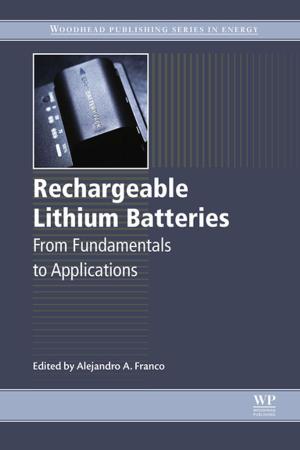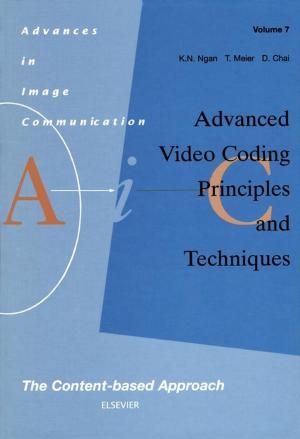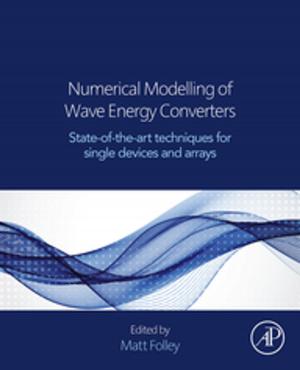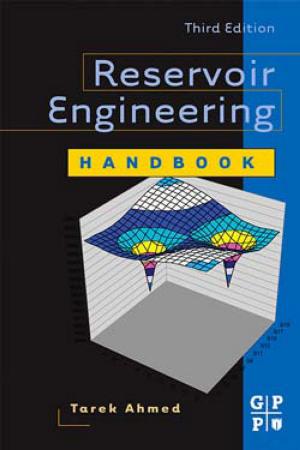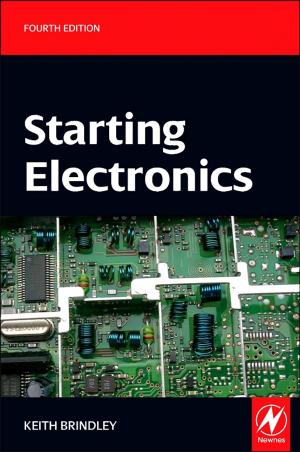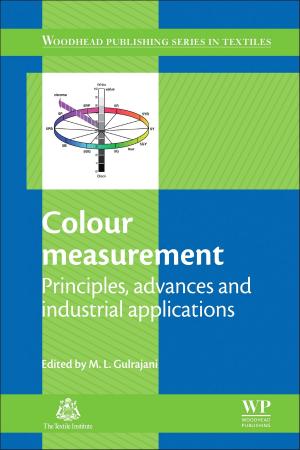Analytical Electrochemistry in Textiles
Nonfiction, Science & Nature, Science, Chemistry, Analytic, Technology, Textiles & Polymers| Author: | P Westbroek, G Priniotakis, P Kiekens | ISBN: | 9781845690878 |
| Publisher: | Elsevier Science | Publication: | August 30, 2005 |
| Imprint: | Woodhead Publishing | Language: | English |
| Author: | P Westbroek, G Priniotakis, P Kiekens |
| ISBN: | 9781845690878 |
| Publisher: | Elsevier Science |
| Publication: | August 30, 2005 |
| Imprint: | Woodhead Publishing |
| Language: | English |
Electrochemistry is the study of chemical reactions with an exchange of electrons, and of the chemical phenomena that are caused by the action of applied currents and voltages. Analytical electrochemistry in textiles provides an overview of the synergy between electrochemistry and textiles, and the possibilities and innovative character of electrochemistry for textiles.
Analytical electrochemistry in textiles is divided into four parts. In the first part an overview is given of the theory of electrochemistry as well as of practical considerations. The second part contains chapters in which the development of sensors is described for the optimisation and automation of textile finishing processes. In the third part the fundamentals of textile electrodes, used in a wide variety of applications, are summarised, as well as offering a developed study of a quality control method. Finally, the fourth part of the book is related to the functionalisation of fibres through chemical and electrochemical modification and some applications are given for these types of textile related electrodes.
Written so that both non-electrochemists and non-textile specialists can understand it, Analytical electrochemistry in textiles is an important guide for textile, chemist and material science academics. It will also prove of great benefit for textile manufacturers, processors, dyers, colourists and finishers.
- Provides an overview of the synergy between electrochemistry and textiles
- An invaluable reference tool for textile, chemist and material science academics as well as textile manufacturers, processors, dyers, colourists and finishers
Electrochemistry is the study of chemical reactions with an exchange of electrons, and of the chemical phenomena that are caused by the action of applied currents and voltages. Analytical electrochemistry in textiles provides an overview of the synergy between electrochemistry and textiles, and the possibilities and innovative character of electrochemistry for textiles.
Analytical electrochemistry in textiles is divided into four parts. In the first part an overview is given of the theory of electrochemistry as well as of practical considerations. The second part contains chapters in which the development of sensors is described for the optimisation and automation of textile finishing processes. In the third part the fundamentals of textile electrodes, used in a wide variety of applications, are summarised, as well as offering a developed study of a quality control method. Finally, the fourth part of the book is related to the functionalisation of fibres through chemical and electrochemical modification and some applications are given for these types of textile related electrodes.
Written so that both non-electrochemists and non-textile specialists can understand it, Analytical electrochemistry in textiles is an important guide for textile, chemist and material science academics. It will also prove of great benefit for textile manufacturers, processors, dyers, colourists and finishers.
- Provides an overview of the synergy between electrochemistry and textiles
- An invaluable reference tool for textile, chemist and material science academics as well as textile manufacturers, processors, dyers, colourists and finishers

